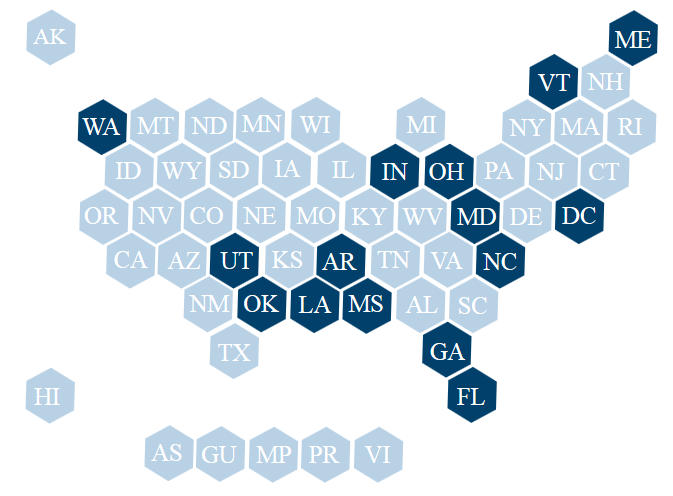President Trump insists that school vouchers and other "school choice" options -- including scholarship tax credits and charter schools -- are a necessary, cost-effective approach to leveling the playing field and closing the vast achievement gap that still exists in the nation's education system. He's gone so far as framing it as a civil rights initiative meant to help the most disadvantaged children.
Despite the legal guarantee of an equal education for all, gaping disparities exist in America’s education system, with poverty and race still the key determinants.
A 2016 Stanford analysis of nationwide academic performance found that the achievement gaps between more affluent and less privileged children is wider than ever, with students in the highest poverty districts testing more than four grade levels below students in the wealthiest ones.
Within individual districts, schools are still often largely segregated, and the academic performance of white students as compared to black and Hispanic students is dramatic: On average, test scores of white students are two grade levels higher than those of black students in the same district, and one- and-a-half grade levels higher than those of Hispanic students, according to the study.
[See how your district compares in this NY Times interactive visualizing the study's findings.]
Trump's recent budget proposal calls for an unprecedented federal investment of $1.4 billion for school choice programs, while simultaneously slashing the Education Department's total budget by a sweeping $9.2 billion — or 13.5 percent.
His education secretary, Betsy DeVos, a billionaire Republican donor and longtime school choice evangelist, compared private schools to ride-hailing apps like Uber and public schools to traditional taxis. Where one is nimble, competitive and efficient, she says, the other is rickety, expensive and outdated. Simply pouring more money into failing public schools has consistently proved ineffective, she says. (DeVos also recently referred to historically black colleges as "pioneers" of school choice, a statement that didn't go over too well.)
"If you think ride sharing is the best option for you, the government shouldn’t get in your way," she said in March. "We celebrate the benefits of choices in transportation and lodging. But doesn’t that pale in comparison to the importance of educating the future of our country? Why do we not allow parents to exercise that same right to choice in the education of their child?"
Proponents of vouchers contend that when given options, parents will choose the highest-performing schools for their children. Competition will force low-performing public schools to improve or risk losing students and funding. Private schools, they argue, are free of many of the bureaucratic and staffing hurdles that traditional public schools contend with, and can operate more independently and cost effectively.
Not surprisingly, though, school voucher programs have proved quite controversial. Opponents argue that they siphon much-needed state funding away from public schools and only benefit a select few at the expense of the majority, while largely excluding students with the highest needs. Rather than divert funds from troubled schools, they contend, why not invest in those schools and help them improve?
Opponents also note that there's little evidence to suggest that students in voucher programs outperform their counterparts. Additionally, critics commonly view government incentives to attend private religious schools as a violation of the separation of church and state.
As part of The California Report's "Trump Ed" series, reporters John Sepulvado and Ana Tintocalis recently sat down with a class of students at Sacred Heart Cathedral High School in San Francisco, the kind of school that a student at a nearby underperforming public school might choose to go to if given the opportunity. When asked if they supported the idea of greater school choice, students offered a range of responses.
